
Nov 5, 2025
All About the Women's Literacy Program in CAR
May 22, 2023
LPGM Launches Women's Literacy Program in CAR
Located in the heart of Africa, the Central African Republic (CAR) faces a multitude of challenges that have left a significant portion of its population living in poverty.
One of the main challenges is political instability, with multiple coups and ongoing violence. This instability has led to a breakdown in the rule of law, a lack of access to basic services, and significant displacement of populations.
As a result, poverty is widespread, with over 60% of the population living on less than $2.15 per day. [source] The lack of infrastructure and services makes it challenging for people to meet their basic needs, and the ongoing instability has made it difficult for the government and aid agencies to provide support. Rural areas lack access to education due to persistent insecurity. At the same time, violations of human rights – especially against women and girls – has increased.
Illiteracy is another significant challenge in CAR, with only about a quarter of adult women able to read and write. This lack of literacy is a barrier to accessing information and participating in decision-making processes. It also makes it difficult for people to obtain formal employment and to fully engage in the economy.
50% more likely to live past the age of five if her mother can read.
The Power of Literacy
The lack of literacy also perpetuates a cycle of poverty, as parents who are illiterate are less likely to be able to support their children's education, and thus their children are more likely to remain illiterate as well.
Functional literacy, however, is recognized as a major force in the fight against poverty. It gives people the opportunity to participate in the economic and social life of their community.
Addressing illiteracy is crucial for the development of the country and improving the quality of life for its citizens. However, achieving this will require significant investments in education and literacy programs, as well as addressing the root causes of poverty and political instability in the country.
Program Objective
Lutheran Partners in Global Ministry (LPGM)—a pan-Lutheran organization that provides access to quality education for people at the margins—is partnering with the Evangelical Lutheran Church of the Central African Republic (ELC-CAR) to launch a women’s literacy program, improving the living conditions of vulnerable girls and women while promoting gender and women’s rights.
Program Origin
During a pivotal meeting in 2018, women leaders from the Evangelical Lutheran Church of the Central African Republic (ELC-CAR) emphasized that women’s literacy was a top priority. They believed prioritizing literacy for women and girls would enhance their quality of life by creating income generating opportunities and by promoting dignity. This discussion led to a literacy program pilot program.
Our Partner
Working alongside the social work arm of the ELC-CAR (OSEEL), LPGM will provide the funds to establish literacy and post-literacy program. OSEEL has a long history of peacebuilding, education, and economic empowerment in western CAR. LPGM and OSEEL worked together from 2012-2018 to establish Village Savings & Loan associations that continue to this day, giving women entrepreneurs the financial support they need to thrive.
Our Target
Three cities that have benefited from LPGM’s village savings and loan program in the past will be the pilots, namely: Bouar, Gallo and Cantonnier. 80 vulnerable women and girls have expressed the desire to read and write throughout these cities to begin the pilot program, which could expand in future years.
Our Plan
In the three targeted communities, three literacy teachers will be identified and trained by a national expert who works with the Directorate Literacy in Non-Formal Basic Education of the Ministry of National Education.
The church will give functional literacy classes to 80 women and girls in one year. These students will receive a minimum of 170 hours of lessons in Sango and French.
Courses will be based on already existing technical materials and resources such as the method, the “Literacy Monitor’s Guide,” the Awareness Talk Manual, the Reading Writing Manual, the Written Numeracy Manual and the adapted post-literacy manuals.
Additionally, as literacy is taught, so are themes relevant to improving living conditions of families, neighborhoods, and communities, such as:
- Public health
- Economic development
- Sexually transmitted disease and HIV/AIDS
- Hygiene
- Nutrition
- Management of literacy committees
- Empowerment
- Women’s rights Our Expected Result
As a result of the literacy program, women will be able to read, women’s rights will be popularized, and harmful practices regarding women’s activities will be reduced. Women will better access better economic opportunities through income-generating activities, and in the process recover their human dignity.
Simply put, as women and girls are taught to read and write, they will have a better chance at rising out of poverty and will teach their children, future children, and communities. Invest in a woman’s education, and everyone around her will also benefit.
Our Hope for the Future
While the initial plan spans 12 months and involves 80 beneficiaries, the project has a renewable duration and could extend to other cities, having major ripple effects across the CAR. This will depend upon sustained financial support and prayers from partners like you.

Jan 31, 2024
Women's Literacy Program Update #1: Instructor Training Begins in CAR
While we have eagerly been waiting for news about the women's literacy program in the Central African Republic (CAR), we are reminded that there is such a thing as "African time." Maybe even "God's time."
Illiteracy is a significant challenge in CAR. with only about 25% of adult women grasping the skills necessary to read and write. This is compounded by the lack of consistent educational opportunities for young girls and boys.
This lack of literacy is a barrier to accessing information and participating in decision-making processes for one's family. It also makes it difficult for a woman - especially a mother - to obtain formal employment, provide for her family, and to fully engage in the economy.
So it is with great pleasure that we announce the official start of the training of three literacy instructors in Bouar, CAR.
Rev. Joseph NGOE, President of the Evangelical Lutheran Church in CAR. (ELC-CAR), marked the occasion at a ceremony on January 24, 2024. Several other church officials, including two synod leaders of the Central African Women for Christ, and representatives from the Department of Education and literacy sectors were present.
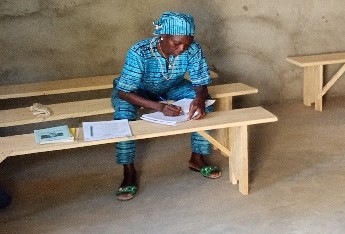
The first session began with the trainers providing kits consisting of manuals, notebooks, pens & pencils, chalkboards, and many other items for the literacy instructors who will be trained for this initiative. This training session will continue for eighteen days.
LPGM has provided initial funding to our CAR partner for this initiative thanks to generous gifts from church partners and interested individuals in the U.S.
We look forward to hearing more once the training has been completed for these three instructors. And, especially as individual teaching sessions begin, we will share updates and stories and photos as they are provided to us.
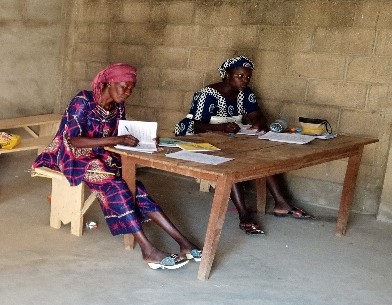
God is at work in CAR. For all the women who are seeking to read and write, good things come to those who wait!
Oct 28, 2024
Women's Literacy Program Update #2: Learnings from the Pilot Year in CAR
The one-year pilot started this year, and our partner Jean Paul recently reported, “I am very impressed by the dynamism and motivation of the young girls and women.” He also expressed that while participants mourn their missed opportunity to learn to read at a young age, they are determined to make up for lost time.
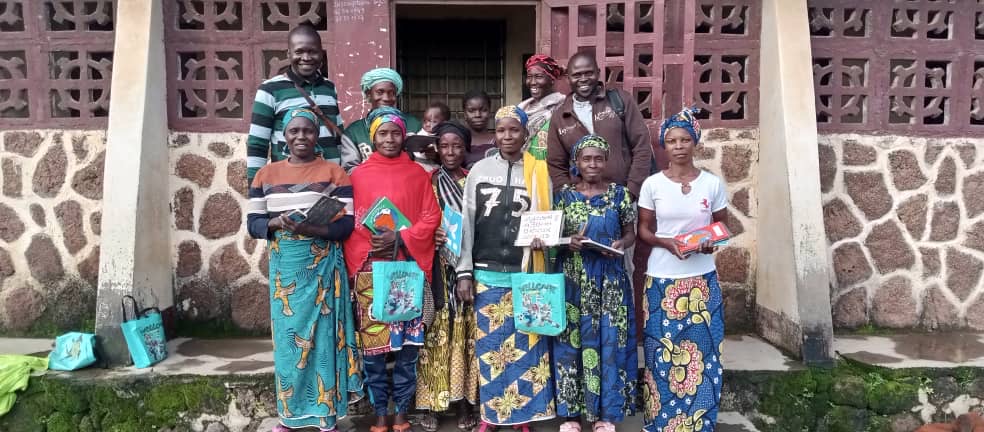
Pilot programs always come with great learning opportunities. Jean Paul let us know that many women couldn’t attend sessions during busy agricultural periods, because women in CAR are deeply involved with farming and needed to prioritize planting and harvesting. The women and girls wanted to continue learning but also needed to provide for their families.
He has suggested lightening the future program schedule during busy farming periods, so that women aren’t forced to choose between learning and supporting their families.
According to Jean Paul, the current participants wish to continue the program in 2025. In fact, many women and girls from other cities have reached out and requested similar programs closer to them. Renewing the project and expanding to other cities will depend upon sustained financial support and prayers from partners like you.
“The women, through me, say thank you for this project that values them...Be blessed for the work you do for the valorization and dignity of women.”
July 7, 2025
Women's Literacy Program Update #3: After a Successful Pilot, Women and Girls Literacy Program Begins Phase Two
Phase two began with training sessions for the instructors and an audit of the program’s supplies. Last year’s instructors are returning for phase two, as well as many of last year’s participants. Additional participants are joining this year as well.
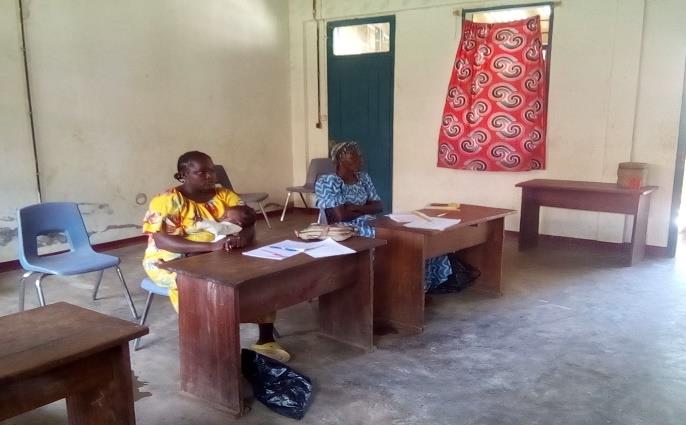
Instructors receive additional training before classes begin.
When classes begin, they will take place three times a week. The main goal of phase two is to continue teaching women and girls to read and write, so that they can contribute to the development of their families and their society. It also seeks to empower women to fight against the gender-based violence.
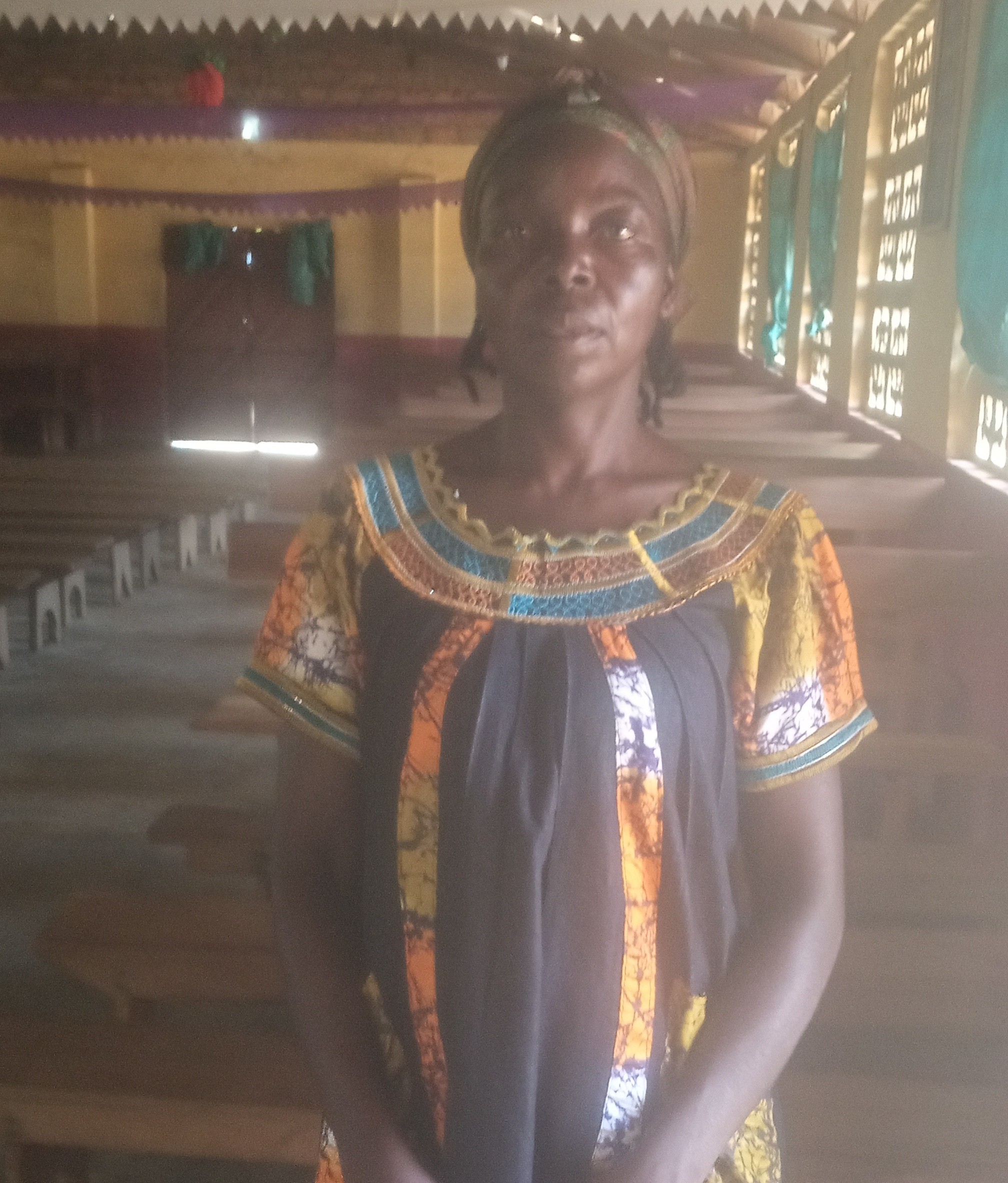
Odette stands in her classroom.
Odette, one of the students in the pilot program, shares her experience as a participant:
“I am very happy for the literacy course put in our center, because since I was born, my parents did not enroll me in classical school, and I did not know how to read and write. Thanks to the literacy course with the financial support of LPGM’s partners at the Evangelical Lutheran Church of the Central African Republic (ELC-CAR), my teacher taught me to read French alphabet and arithmetic. Today, I can read, I also write names, and I can sing with the songbook.
Finally, I learned a lot from the first phase of this program because it was an opportunity for me to meet with other women to share our experiences and also the good way our teacher advises us to take care of our children. Thanks to the literacy program, I learned arithmetic, and it makes it easier for me in my small businesses.”
More impact stories:
August-October 2025
Women's Literacy Program Update #4: Phase Two Continues with Great Success
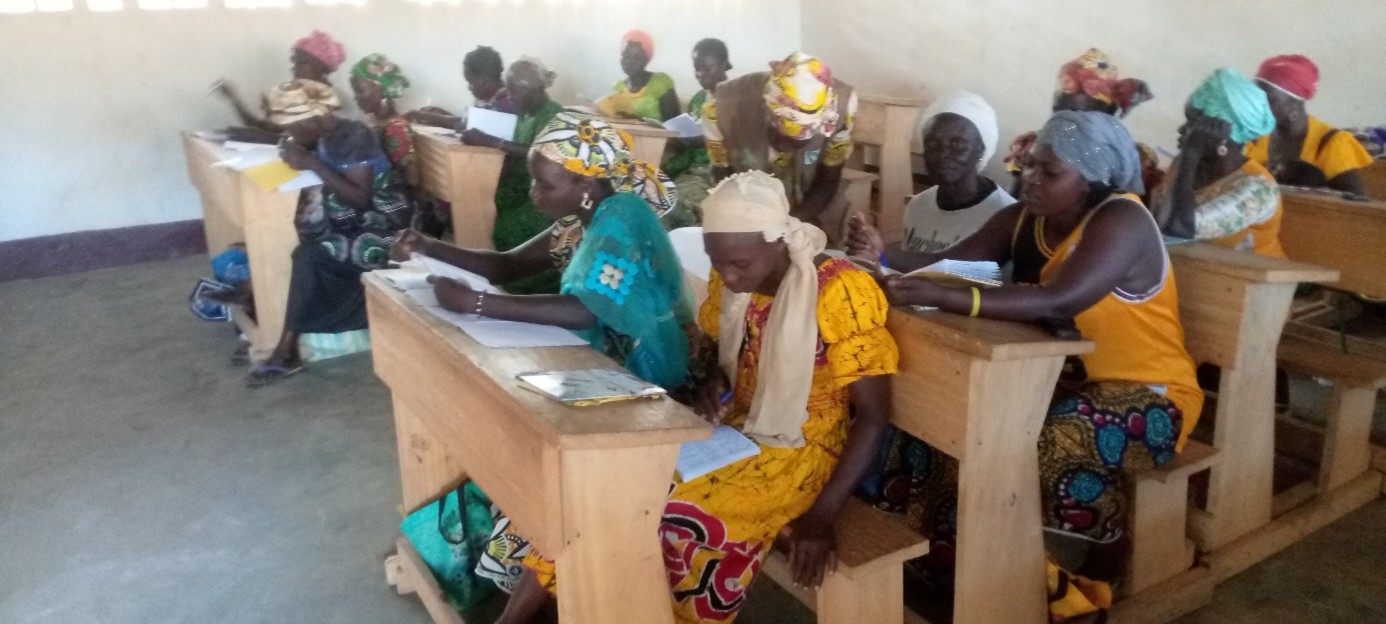
Mrs. Christine Bagoudou bends over a desk as she works with a student. This photo of combined classes was taken at the Bouar Learning Center.
In late summer, attendance dipped in the women's literacy program in CAR. Instead of the expected 80 students across three centers, 53 students regularly attended classes - 22 students at the Bouar Center, 19 students at the Cantonnier Center, and 12 students at the Gallo Center. This decline was due to the start of the farming season when women play an essential role in agricultural work, and many had to temporarily miss class.
By fall, attendance rebounded with 84 active students!
Classes are held three times a week, and each class is three hours long. They follow a structured format similar to classrooms in the United States: students begin by reviewing homework with their instructor, then receive the day’s lesson, ask questions, and finally practice through exercises.
The women are committed to their education and are highly motivated to learn. They want to read and write well so that they may both proclaim the word of God and thrive in their small businesses.
These learners have already made huge progress towards these goals! 27 students are now able to read and write their names, and 5 students have started reading the Bible during Sunday worship. These milestones are especially significant, as many students had never entered a classroom before this program or had only attended school briefly as young girls.
The word has spread about this special opportunity, and new women have joined the program in its second year.
Naturally, there have also been a few challenges. Program administration can be delayed due to slow financial processes, which are not uncommon in the CAR. Communication between program administrators and LPGM has also faced several hurdles, and there is a current need for French translation to facilitate an upcoming meeting (please reach out to Laura@lutheranpartners.org if you are able to help!). Additionally, more resources such as hymnals and Bibles are needed, requiring additional funding,
Despite these obstacles, the program continues to change lives and open doors! Your generous gifts make this possible.
Women’s Literacy Program Manager Jean Paul shares, “We express our gratitude to the LPGM Program Manager, LPGM Executive Director as well as the entire LPGM team and the donors for your spiritual and financial support. We convey to you the thanks of the teachers and the participants.”
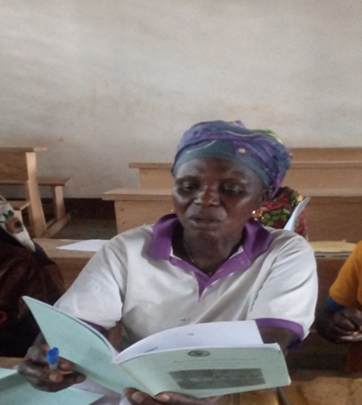
Mrs. Hawa reads from a book during class.
Mrs. Hawa has been a student since the first phase of the literacy program. She is grateful to be a participant, not only for the chance to learn to read and write, but also for the friendships, deepening relationships, and exchange of ideas that enrich her life.
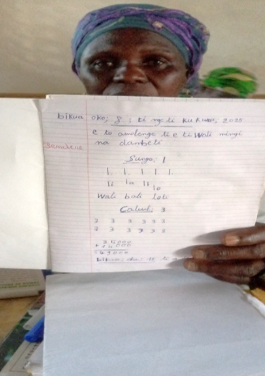
Mrs. Hawa shows her notes from class.
She is the local president of the Women's Movement at the Lutheran Center in Bouar. In her role, she leads women's meetings, represents women at conferences, and provides business guidance and advice to other women. According to Jean Paul, “She is a model woman who encourages other women to participate in this program.”
Miss Guylaine* is another student who joined the program this year. She sells peanuts, beans, and cassava in her small business.
Before joining the program, she hadn’t been to school since she was a child. She decided to sign up for the program this year, having watched her peers’ achievements from their participation last year. She observed that the knowledge they gained helped them successfully run their small businesses, so she decided to sign up this year.
*Miss Guylaine was absent when Jean Paul visited the classroom to take photos.






